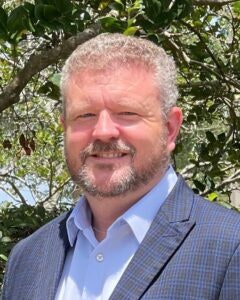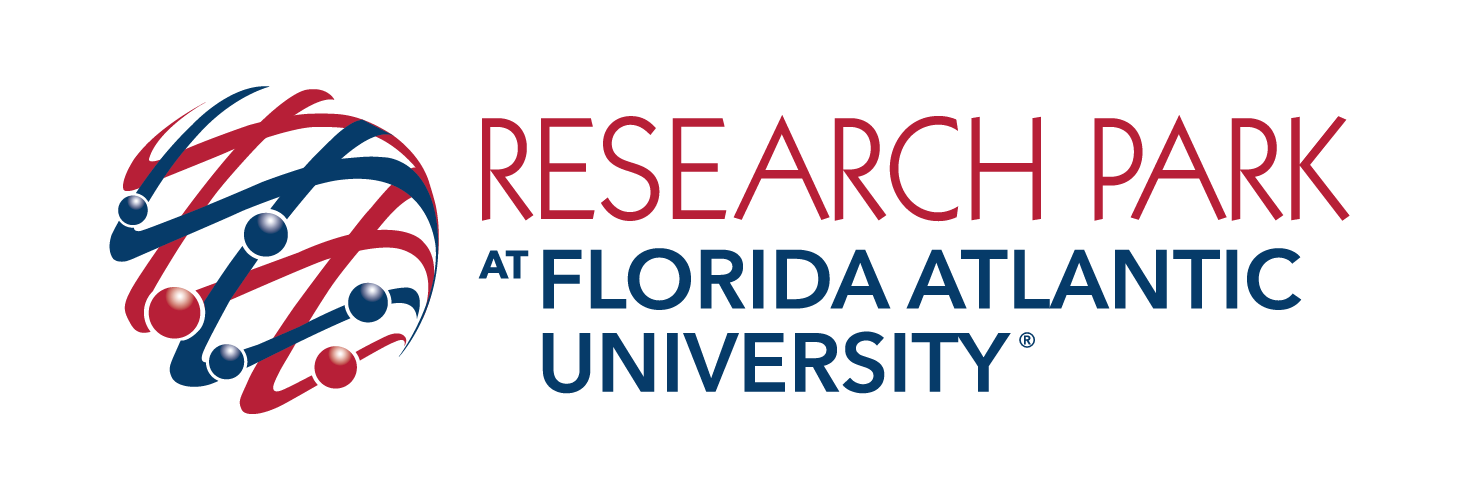Spotlight On: Andrew Duffell, President, Research Park at Florida Atlantic University®

Known globally as the gateway to both Latin America and Europe, South Florida is working to further develop a technology hub for business growth. Andrew Duffell, president of the Research Park at FAU, shares why companies looking to grow should be looking toward Palm Beach.
What makes the research park such a great soft-landing spot for international companies looking for a U.S. footprint?
The attractive thing about us is firstly, location. With modern transportation, South Florida has become the nexus between North America, South America and Europe, the easiest point to get to and from all three. Anybody looking at doing business in the United States would do well to look here, particularly if they have plans to expand further beyond that. Our metro region is home to a massive 7 million people. Jupiter, at the northern end of the region is important, especially in a technology sense, because it has the Scripps Research Institute and the Max Planck Florida Institute. There is a great deal of scientific talent at that end of the region. The Research Park at FAU itself is next to a 30,000-student university in Boca Raton with research expenditures that are now around $70 million dollars and trending up. We have one of the newest medical schools in the United States and Florida Atlantic University is the most diverse university in Florida: FAU is a minority majority college. We are truly diverse, not predominantly any one race or ethnicity or group, which provides a tremendous opportunity to anyone who is learning or doing business here. You are surrounded by people of different backgrounds. We’re recruiting in the areas of technology that Florida Atlantic University has deep strength in, so for those companies the opportunity to work with the faculty to develop and perfect their offering as well as use our resources to grow the company is very appealing.
The Research Park itself is full of success stories. Together with GenesisCare we recently announced a new elective for fourth year medical students in radiation oncology, for example. We were also very pleased that three of our companies – Aventusoft, 4ocean and MPLT Healthcare – were honored as Florida Companies to Watch by GrowFL in 2020; we have had at least one honoree in almost every class since the awards’ inception ten years ago.
Also, in 2020, we launched our Global Ventures program. Rather than startups, the program focuses on second-stage companies, either domestic or foreign in the technology field in which FAU has strength. The program focuses on data for better decision-making. We invest in the company by giving them structure, dedicated strategic research, consulting hours, and helping them develop links to the university, to the community and leisure activities so that as they grow and become successful, South Florida becomes their home. The program won an award from the International Business Innovation Association (InBIA) at its recent international conference, which was the first time they have given this award to a soft-landing center. We have been very pleased with how quickly the word has spread and the value that entrepreneurs see in what we offer.
What are some of the main challenges that businesses at the Research Park at FAU are facing?
A challenge for everyone in business is figuring out when and how to bring people back after the pandemic and how much space they will need. It is an unresolved question. A big challenge in remote work for companies like those we have that are developing new technologies is the spontaneous, one-to-one interactions. We’re used to having scientists and entrepreneurs literally bump into each other and talk about what they’re working on and then something new comes up. That’s not happening right now because so many people are remote. It is being addressed somewhat with online forums, but it is obviously not the same. We are a bit concerned about that because we will not see its effects for a year or so and we may see a dip in terms of new ventures that would have happened if people had been bumping into each other. We can overcome it, but it is something that we will have to adapt to.
The other unfortunate thing, particularly for students as well as companies, is internships are more difficult now. That was always a great pathway to a career or figuring out what you do or do not want to do and for learning the soft skills of interacting with business professionals in the work environment. That has changed. FAU has done a good job reimagining internships to make them virtual, but again, it’s just not the same. We will have to see how that translates into career paths and new innovations within companies.
What is your outlook for the Research Park at FAU?
We are really optimistic. People are more than ready to get back together and get back to full speed. Because of the pandemic, lots of funds were not spent — travel, new projects that were sidelined. Those resources are ready to be deployed for the right activity. We can cautiously hope for some new business investment, certainly in the Research Park at FAU and around the region. Given the success of our Global Ventures program, we are bullish on the future. We have seen people who are determined to get here from overseas and innovate here in South Florida. We have a sturdy pipeline of companies that have already applied to the program. The big challenge with that is obviously the ongoing pandemic and how it’s managed in different parts of the world. The other is visas and the immigration environment in the US. The signs from the Biden administration in that regard are more positive and we will work closely with our congressional delegation to make a positive case for entrepreneur-related visas.
For more information, visit:
